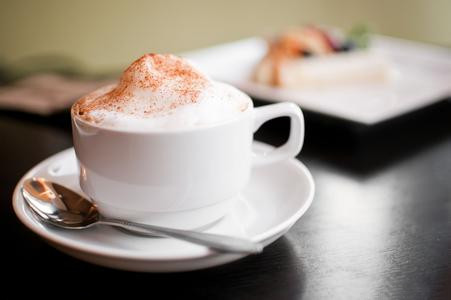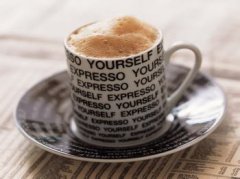The bitter taste of coffee comes from the roasting process of coffee beans.

In western countries, people drink a cup of coffee every morning. In order to cover up the bitterness of the coffee, they often add some milk powder and sugar. But why is coffee bitter? A seemingly simple problem has been bothering scientists for decades. Now, scientists have narrowed down their research and targeted two chemical molecules. At the annual meeting of the American Chemical Society, scientists reported that the two bitter chemical molecules were produced during the processing of coffee, a discovery that could revolutionize the coffee processing industry.
When you drink a cup of coffee, you actually drink a mixture of more than 30 chemicals, some of which give off fragrance, some make the taste better, and some have something to do with sour taste. Since the 1930s, scientists have begun to separate chemicals from coffee, and many flavor-related chemicals have been separated from coffee by scientists, but no bitter chemical molecules have been found.
To make the discovery, Thomas Hoffman of the University of Technology in Munich, Germany, and his colleagues once again separated the brewed coffee. They found that the chemical molecule with the smallest molecular weight in coffee tastes the bitterest, and this molecule becomes the object of further study. After analysis by mass spectrometer, Hoffman identified one of the molecules, chlorogenic acid lactone, which is a decomposition product of chlorogenic acid (found in almost all plants). Hoffman's team then prepared a series of different coffees to determine the content of chlorogenic acid lactone.
They found that when roasting coffee beans, it triggers a chain reaction in which chlorogenic acid is first broken down into chlorogenic acid lactone, and if baking continues, chlorogenic acid lactone breaks down into another substance, phenyllindane. Although lactone will only produce mild bitterness in mild and moderate roasted coffee, the secondary decomposition products of lactone will produce strong bitterness if the coffee beans are roasted for a long time.
Important Notice :
前街咖啡 FrontStreet Coffee has moved to new addredd:
FrontStreet Coffee Address: 315,Donghua East Road,GuangZhou
Tel:020 38364473
- Prev

Coffee beans buy and save Coffee beans save tips
Coffee beans purchase attention points first choose the booming coffee accounted for the purchase. The freshness of roasted beans is the life of coffee, so choose a warehouse where fresh coffee beans are placed, a clean place without oil residue of old beans, no direct sunlight, and no high temperature around the store. It is also a good idea to buy from a shop that thinks it is delicious. When buying baked beans, it's refreshing
- Next

How long does it take for coffee beans to bake in Mantenin?
[question] mm-hmm! Went to buy a popcorn machine from Fengda. But it is strange to bake to Manning. Not only is it not very uniform (some are very dark and some are very light), but after baking for a few minutes, most of the beans seem to be burnt. How long will it take for Manning to bake? What skills do you have? [answer] I mentioned before that Manning's raw beans contain more water and are darker in color, so it is difficult to bake evenly. (
Related
- Detailed explanation of Jadeite planting Land in Panamanian Jadeite Manor introduction to the grading system of Jadeite competitive bidding, Red bid, Green bid and Rose Summer
- Story of Coffee planting in Brenka region of Costa Rica Stonehenge Manor anaerobic heavy honey treatment of flavor mouth
- What's on the barrel of Blue Mountain Coffee beans?
- Can American coffee also pull flowers? How to use hot American style to pull out a good-looking pattern?
- Can you make a cold extract with coffee beans? What is the right proportion for cold-extracted coffee formula?
- Indonesian PWN Gold Mandrine Coffee Origin Features Flavor How to Chong? Mandolin coffee is American.
- A brief introduction to the flavor characteristics of Brazilian yellow bourbon coffee beans
- What is the effect of different water quality on the flavor of cold-extracted coffee? What kind of water is best for brewing coffee?
- Why do you think of Rose Summer whenever you mention Panamanian coffee?
- Introduction to the characteristics of authentic blue mountain coffee bean producing areas? What is the CIB Coffee Authority in Jamaica?

